Resources
Get Matched to the Right Builder
FIND THE PERFECT CUSTOM HOME BUILDER WITH OUR FREE ASSESSMENT
Tired of feeling overwhelmed? Look no further. We'll match you to the right builder in the Houston area and save you months of valuable time and money you'd spend trying to find one on your own. Click below to get started!
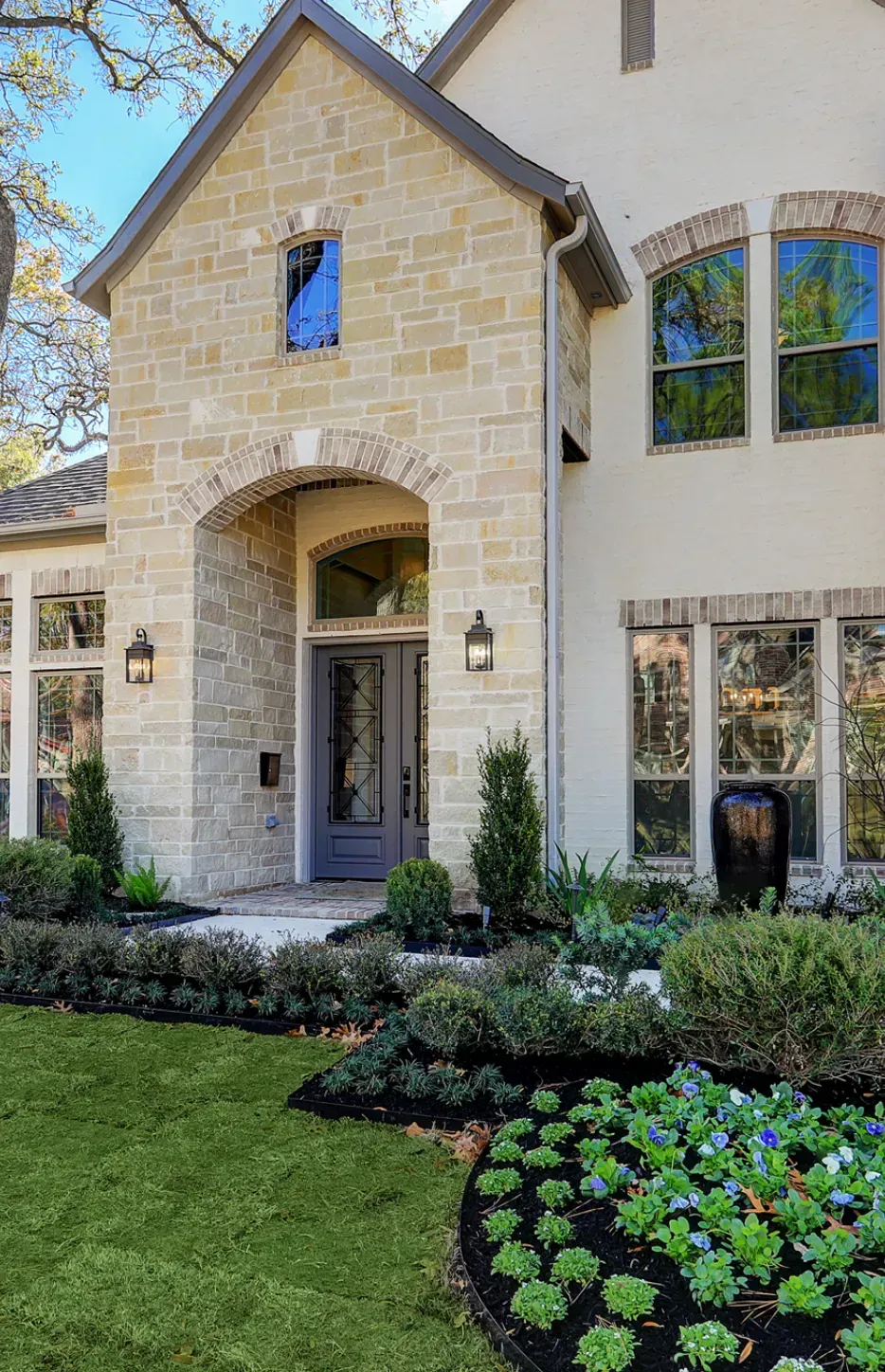
Download The Ultimate Custom Home Building Guide
A Step-by-step guide to building your custom dream home.
Download The Ultimate Custom Home Building Checklist
Finance

Finding Lot

Best Builder

Explore Our Gallery of Custom Homes
Browse our finished projects that display the craftsmanship of the builders we’ve matched with homeowners – turning dreams into reality.

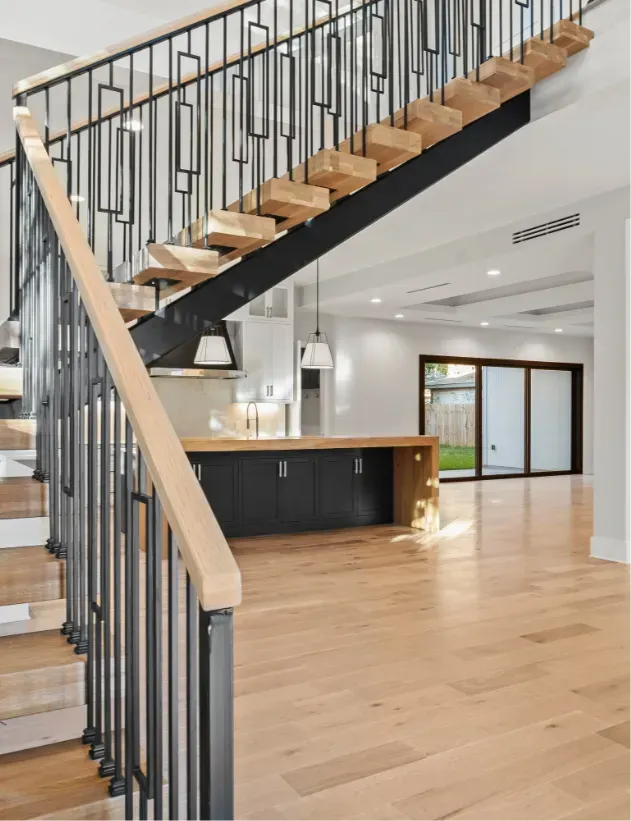



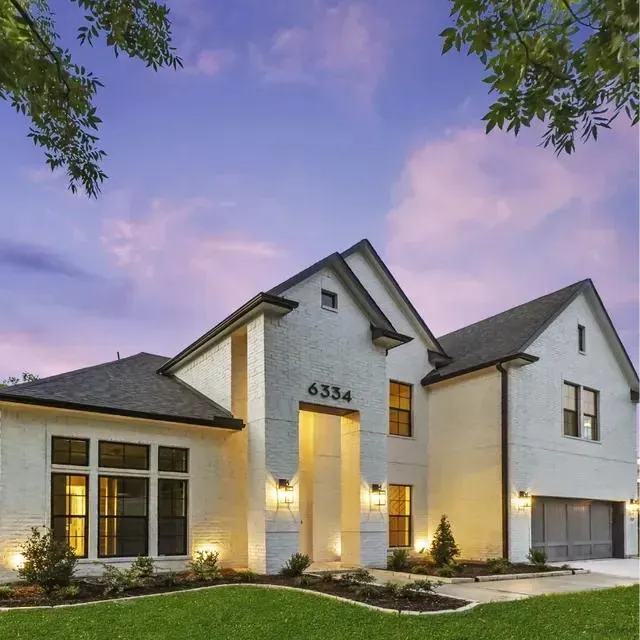
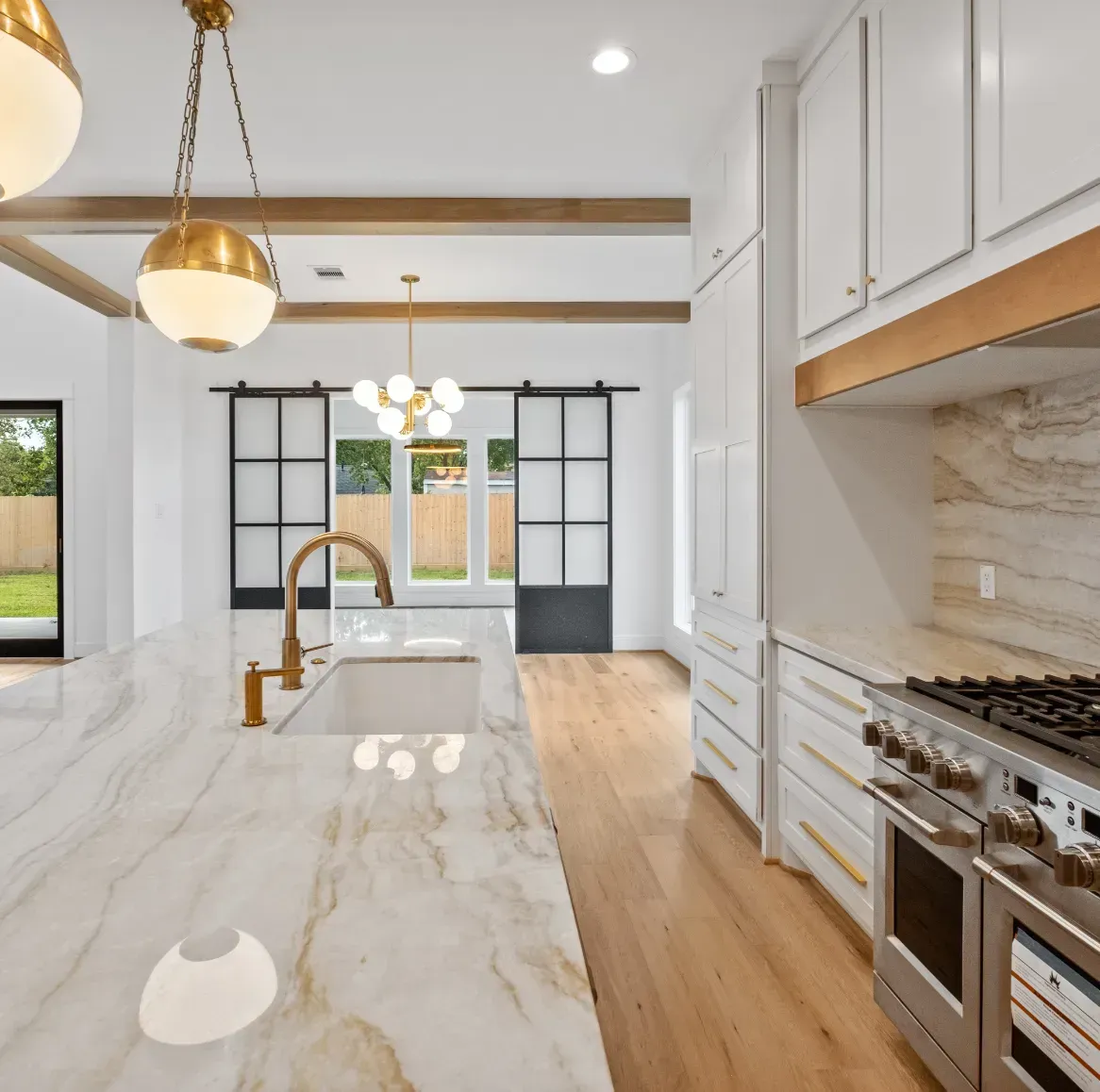
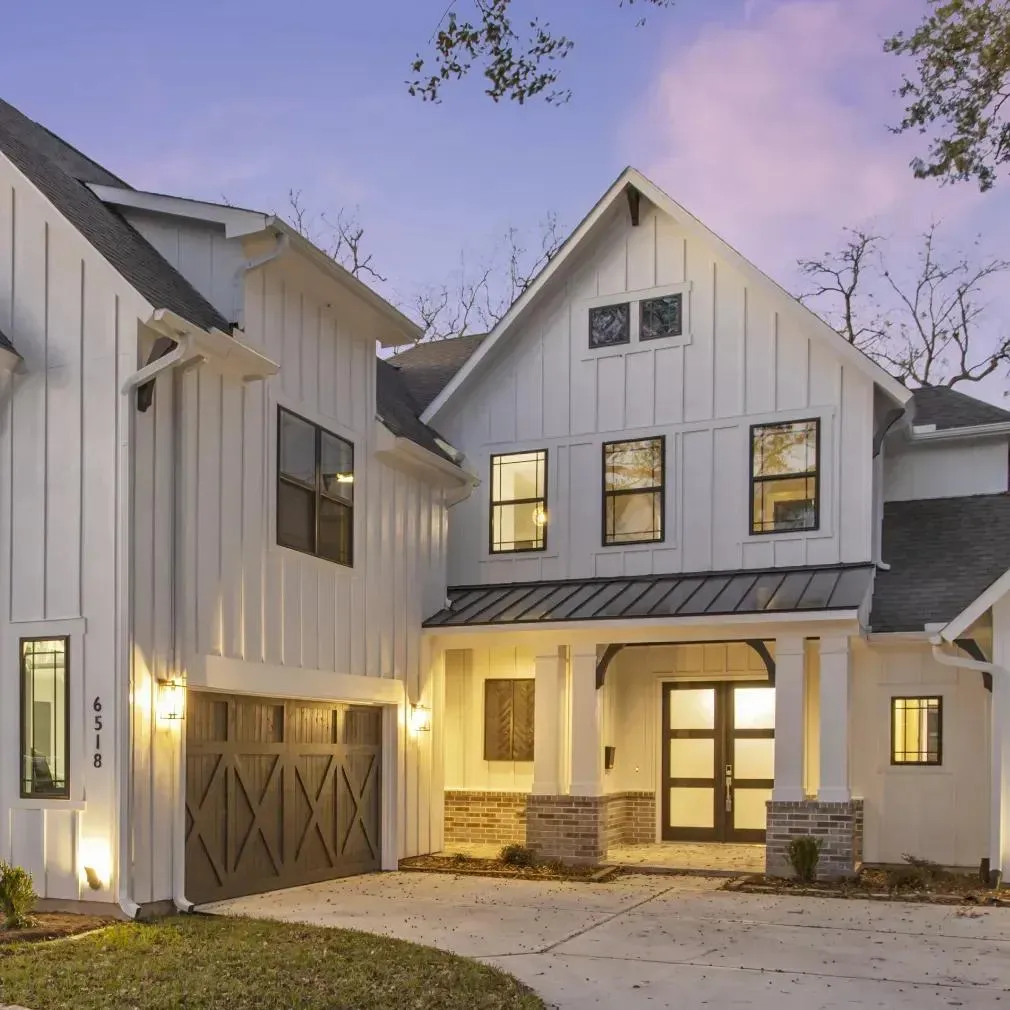

BLOG

Key Financing Options for Home Building Consultants Unpacked
Building a custom home requires careful planning, budgeting, and selecting appropriate financing options. Home building consultant services offer expert guidance on financing, contractor selection, permitting, and risk mitigation. This article explains the financing options available for home building, outlines the role of consultants, and provides insights on application strategies and market trends.
Key Takeaways
Financing options include construction loans, home equity loans, and government-backed loans.
Consultants help with budgeting, contractor negotiation, and overall project oversight.
Loan eligibility depends on credit scores, documentation, interest rates, and loan terms, while permits and building codes also play a role.
Each option has its pros and cons based on individual finances and project needs.
Staying informed of rising construction costs, interest rate trends, and technology advances is key.
What Are the Main Financing Options Available for Home Building Consultant Services?

Financing is a crucial part of most home building projects, and understanding the available options can help streamline the process and reduce financial stress. One common choice is a construction loan, which disburses funds in stages as the building progresses—ideal for managing cash flow throughout the project. Home equity loans and HELOCs (Home Equity Lines of Credit) allow homeowners to borrow against the value of an existing property, providing flexible funding for larger or ongoing expenses. For smaller costs, such as paying consultant or design fees, personal loans can be a practical solution. Additionally, government-backed programs may offer favorable interest rates and lower down payment requirements, making them especially helpful for first-time builders or those working within tighter budgets. Exploring these financing options early ensures a smoother building experience and helps keep your project on track financially.
How Do Construction Loans Work for Home Building Projects?
Construction loans are short-term loans designed to fund home construction. Funds are released based on project milestones, allowing for controlled spending. They often feature variable interest rates due to higher risk and can convert to permanent mortgages once construction is complete.
What Are Home Equity Loans and HELOCs for Financing Home Building?
Home equity loans provide a lump sum at a fixed interest rate using the home’s value as collateral, while HELOCs offer revolving credit with variable rates. Both help finance construction or renovations and are useful for homeowners with substantial equity.
Can Personal Loans Be Used to Finance Home Building Consultant Services?
Personal loans, which are unsecured, can cover smaller amounts such as consultant fees or planning expenses. Although they may have higher interest rates compared to secured loans, their simple application process makes them a useful supplement to primary financing.
What Government-Backed Loan Options Support Home Building Financing?
Programs like FHA construction loans and USDA home improvement loans offer lower down payments and fixed rates that benefit borrowers with moderate credit. State and local programs may also provide rebates, grants, or low-interest options to help offset costs related to permits and regulations.
How Can a Home Building Consultant Help You Navigate Financing Options?
Consultants guide homeowners through various financing options, blending financial planning with realistic construction budgets. They break down complex loan products into clear terms and help with paperwork and negotiations between borrowers and lenders.
In What Ways Do Consultants Assist With Budgeting and Cost Management?
Consultants help develop realistic budgets by estimating construction costs, permit fees, and contingency funds. Their ongoing oversight and adjustments during construction often lead to savings and help avoid unexpected expenses.
How Do Consultants Support Contractor Selection and Negotiation?
With industry insights and strong networks, consultants assist in choosing reputable contractors. They review bids, credentials, and contract details, ensuring clear timelines, costs, and quality standards while negotiating favorable terms and payment schedules.
What Role Does a Consultant Play in Project Oversight and Risk Mitigation?
Consultants provide ongoing oversight during construction, ensuring adherence to budgets, schedules, and quality standards. They address issues such as delays or cost escalations early by reviewing progress and ensuring compliance with legal requirements.
What Are the Key Requirements and Eligibility Criteria for Construction Loans?

Construction loans require a strong credit history, detailed project plans, and sufficient collateral (such as land or an existing property). Lenders also assess income stability and the borrower’s down payment capacity.
What Credit Score Is Needed to Qualify for a Construction Loan?
A credit score of around 680 or higher is typically expected, as lenders look for a history of on-time payments and low debt ratios. Higher scores generally result in better interest rates and loan terms.
What Documentation Is Required When Applying for Construction Financing?
Applicants must supply detailed project plans, cost estimates, contractor bids, property appraisals, income proof, and often collateral documents like title insurance and tax statements. This comprehensive paperwork helps lenders evaluate project viability.
How Do Interest Rates and Loan Terms Affect Construction Loan Costs?
Variable interest rates and differing loan terms affect monthly payments and overall costs. Shorter terms might result in higher payments but lower overall interest, while longer terms reduce monthly costs yet extend total interest paid.
How Do Home Building Permits and Building Codes Impact Financing Options?
Permits and building codes ensure construction compliance with local standards, impacting both legal approval and project costs. Lenders require proper permits to minimize financial risk and avoid project delays.
Why Are Building Permits Important for Securing Construction Loans?
Building permits verify that a project meets local standards, reducing lender risk. Without them, there may be delays or even rejections in loan disbursement.
How Do Building Codes Influence Project Costs and Loan Amounts?
Building codes set standards for materials and safety, increasing project costs but also protecting homeowners from future liabilities. Compliance with these codes is factored into loan amounts and overall financing requirements.
What Are the Pros and Cons of Different Financing Options for Home Building?

Each financing option has benefits and drawbacks. Construction loans offer staged funding but may have higher rates. Home equity loans provide fixed rates and predictability, while HELOCs offer flexibility with variable rates. Personal loans are quick and unsecured but come with higher interest.
How Does a Construction Loan Compare to a Traditional Mortgage?
Construction loans provide funds in phases and cater to building projects, whereas traditional mortgages offer a lump sum for purchasing finished homes. The former may have higher interest rates due to risk, while traditional mortgages typically have lower rates and longer terms.
What Are the Advantages and Disadvantages of Home Equity Loans vs. HELOCs?
Home equity loans give a fixed sum with predictable payments, ideal for those needing certainty. HELOCs provide a revolving credit line, offering flexibility for fluctuating construction costs, but payments may vary.
When Is a Personal Loan a Viable Option for Home Building Financing?
Personal loans work best for covering smaller expenses such as consulting fees or minor adjustments when primary financing is already in place. Their unsecured nature means faster processing but generally higher interest rates.
How Can You Apply for Financing to Cover Home Building Consultant Services?
Financing applications begin with researching loan options, preparing robust documentation, and meeting lender criteria. Clear financial proposals detailing project costs and timelines are essential.
What Are the Steps to Apply for a Construction Loan?
First, prepare detailed project plans and cost estimates. Then, gather necessary documents like income proofs, credit reports, and property appraisals before submitting an application. A lender may inspect the property and, once approved, disburse funds in milestone-based installments.
How Do You Use Home Equity Financing to Fund Your Home Building Project?
Home equity financing involves leveraging property equity to secure a lump sum or revolving credit, which can cover construction materials, labor, and consulting fees, usually at lower interest rates than unsecured loans.
What Tips Help Improve Your Chances of Loan Approval?
Maintain a strong credit score, compile comprehensive documentation, and work with experienced consultants. Keeping a low debt-to-income ratio and clearly outlining a repayment strategy can greatly enhance loan approval prospects.
What Are Current Trends and Market Insights Affecting Home Building Financing?

Financing trends are shaped by rising construction costs, fluctuating interest rates, and technology advancements. Home builders now seek financing that is flexible and cost-effective as market dynamics continue to evolve.
How Are Rising Construction Costs Influencing Financing Needs?
Increasing costs due to labor shortages and material price hikes force borrowers to reexamine budgets and may require lenders to demand stricter documentation and higher down payments. Consultants help identify cost-saving measures and alternative funding options.
What Interest Rate Trends Should Home Builders Know?
Interest rates for construction loans can be volatile. Monitoring economic indicators and securing financing when rates are lower is crucial for long-term cost management.
How Is Technology Changing the Home Building Financing Process?
Digital applications, online banking, and automated underwriting have streamlined the loan application process. These technologies enable faster, more transparent financing and improve overall accessibility for homeowners.
Final Thoughts
Financing a custom home requires understanding various loan options, eligibility criteria, and the expertise of home building consultants. Comparing construction loans, home equity products, personal loans, and government-backed options allows homeowners to choose the best financing strategy for their needs. With rising costs, changing interest rates, and digital advancements, staying informed and working with experts is essential to realize your dream home efficiently and securely.
Frequently Asked Questions
Q: What is a construction loan?
A: A construction loan is a short-term loan that provides funds for building a home and is disbursed in stages based on project milestones.
Q: How can home equity loans help fund home building?
A: Home equity loans allow homeowners to borrow against their property's value, offering lower interest rates and predictable fixed repayments.
Q: What documentation is essential for a construction loan application?
A: Essential documentation includes detailed project plans, credit reports, income proofs, contractor bids, and property appraisals.
Q: How do rising construction costs impact financing decisions?
A: Higher construction costs require larger loans and may lead lenders to demand stricter documentation and higher down payments.
Q: Can technology expedite the financing process for home building?
A: Yes, digital applications and online banking solutions streamline the loan application and approval process, making financing faster and more efficient.
Contact Us Today To Learn More
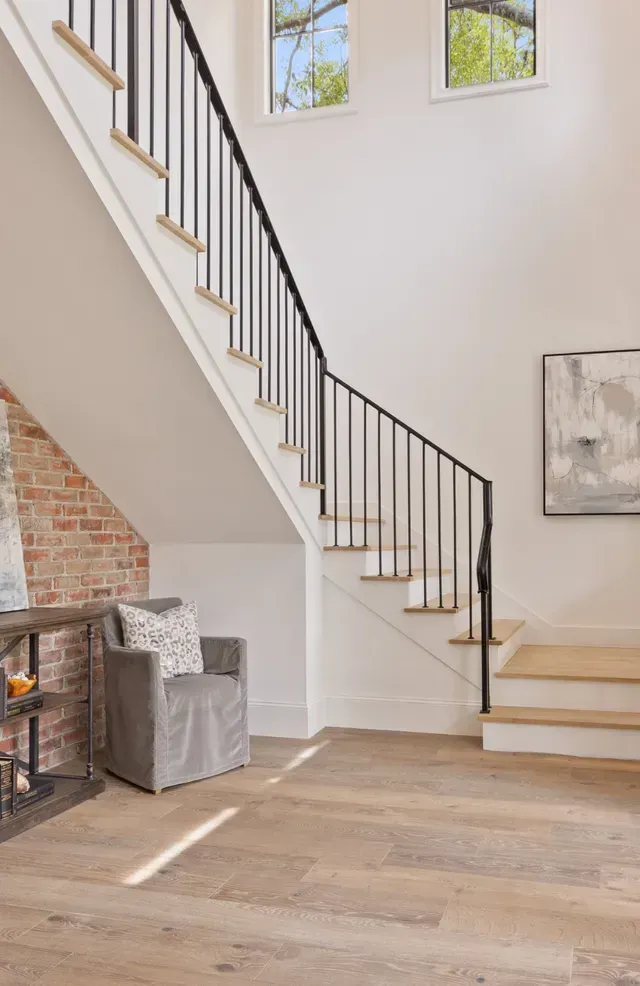
Phone: +1 713-304-5330
Address: 8588 Katy Fwy #450, Houston, TX 77024, United States


